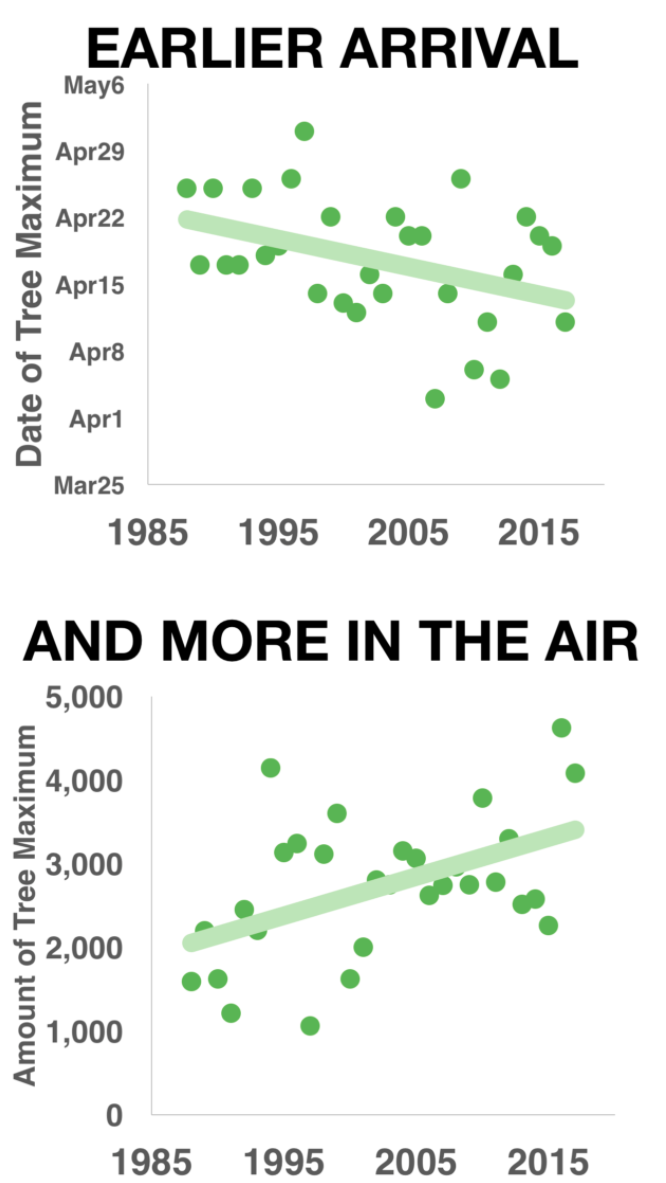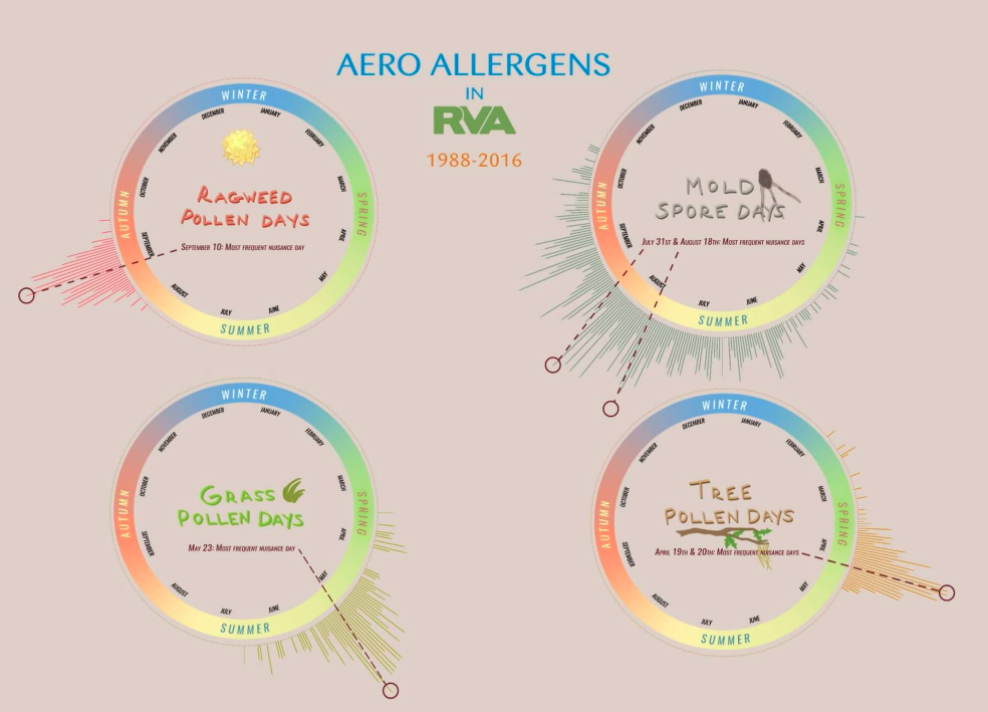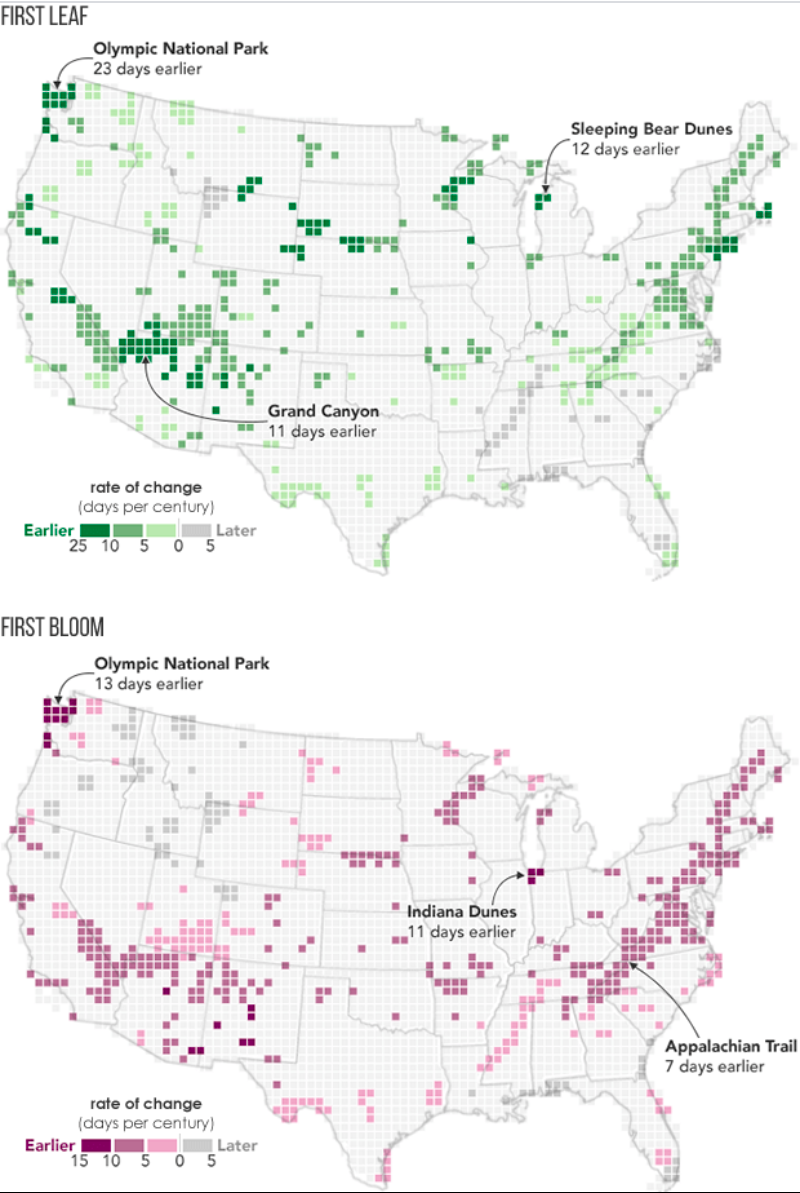Question Your World: Is Pollen Season Happening Earlier?
Seasonal change is a big deal for life on Earth. Take us humans, for example. As we go from winter to spring, we bid adieu to flu season and, in turn, say hello to allergy season! Turns out that allergy seasons are getting worse here in Richmond, VA. No surprise – it involves our changing local climate. So, is pollen season happening earlier?
Over the years, you may have noticed that some of your watery-eyed, sneezy days may be happening earlier than you recall in the past. Recently published data show that Richmond’s winter is shortening faster than in most cities on the US east coast – and this is a direct symptom of climate change happening right here at home.
Thanks to our friend Rebecca "The Pollen Lady" Collie at Allergy Partners-Richmond , we see in the graph below just how our local tree phenology has changed over the last several decades. Looking at nearly 30 years' worth of measurements of the arrival and amount of tree pollen on its maximum day, we can see that we have earlier and more intense pollen maximums in April than we did just 30 years ago.

This means a few things for us. Earlier springtime temperatures means trading in those sweaters and scarves for flippies and Chacos sooner in the year. But earlier springtime temperatures along with the right amount of rainfall also mean an earlier onset of the allergens that make us wheeze and sneeze!

Data collected over the last thirty years show that our tree pollen extremes have been moving earlier in the spring and they’re getting more intense, making many people’s symptoms worse. But wait, there’s more - our grass pollen season too is occurring earlier, even more so than the tree pollen season! A very noticeable reminder that as the climate changes, it impacts the life processes of plants and animals.

So, what can we do about all this information? Well, we can use it to better prepare for this year’s allergy season! Replacing our HEPA filters at home, recirculating indoor air on high pollen days, washing our clothes and pets down after outdoor activities, and starting our medications earlier are ways to become resilient to our earlier springtime pollen season!
Information like this is being studied by smart men and women all year round. While the springtime allergens may be an issue for these warming days, the impacts of our climate can be felt everywhere all year long. Staying on top of these climate occurrences will only help communities be stronger and more resilient to extreme weather's impacts.
From wetter winters to pollen-filled springs, scientists are here to help us better understand the natural world that surrounds us. Using this data and being prepared is a great way for us use science and it could make your springtime less a-pollen.


